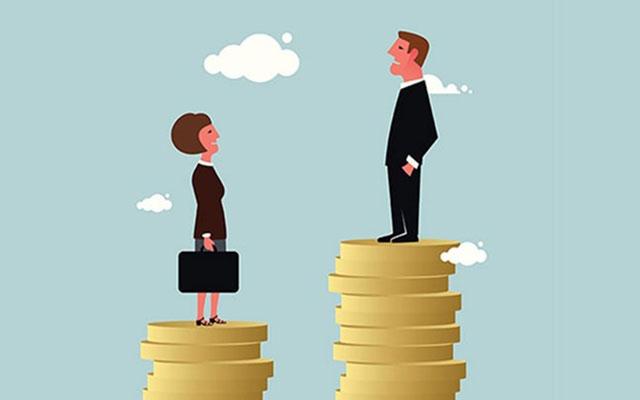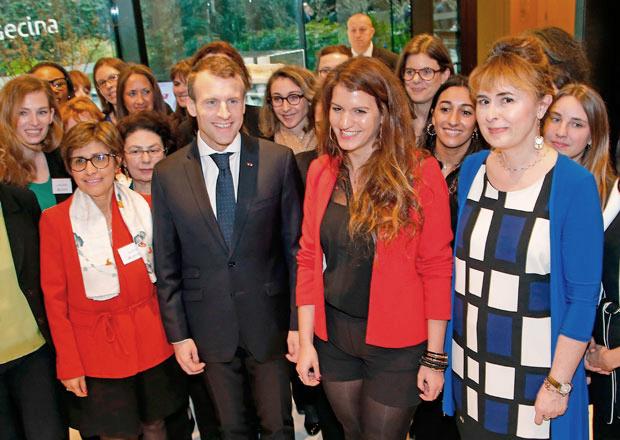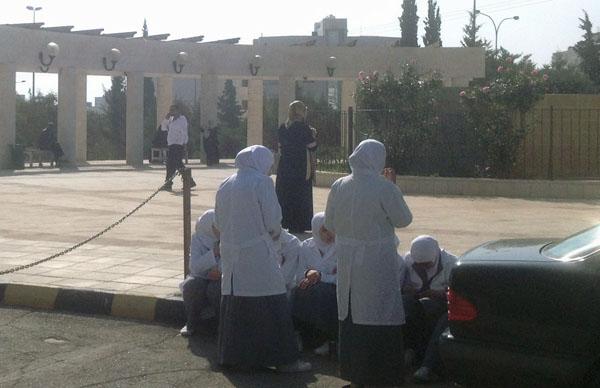You are here
International Equal Pay Day gives awareness to gender pay gap
By Maria Weldali - Sep 17,2022 - Last updated at Sep 17,2022
AMMAN — On International Equal Pay Day, Jordanian women in the labour force have the opportunity to share their experiences with the gender pay gap.
Observed annually on September 18, International Equal Pay Day represents the efforts taken towards achieving equal pay for work of an equal value, and the United Nations› stance against all forms of discrimination, including pay discrepancies based on gender, according to the UN.
Across all regions, women are paid less than men for the same work. The gender pay gap is estimated at around 23 per cent on a global average, the UN reported.
“Gender equality and the empowerment of women and girls continue to be held back owing to the persistence of historical and structurally unequal power relations between women and men,” according to the UN.
“In some jobs, women are still not getting equal payment, especially in private schools,” said Dana Laham, a science teacher who now works at a public school in Amman.
Wage disparities have had a compounding impact on women’s earning potential, and have limited women’s economic empowerment, Laham highlighted.
When Laham first started teaching, her salary was JD345, she said. At the same time, a male teacher was employed with a starting salary of JD410, despite having the equal years of experience, she said.
In Jordan, the gender pay gap also manifests itself through inequities in non-wage benefits, or compensation provided to employees in addition to their normal wages. It is also manifested through the under-valuation and underpayment of jobs in female-dominated fields, according to the International Labour Organisation (ILO).
In 2009, gender pay disparity was the highest in the private education sector, as a woman's average salary was JD273, while a man’s average salary stood at JD523, according to the Department of Statistics.
Taima Naser, a nurse with five years of experience, told The Jordan Times on Saturday that “usually a woman, especially if married, is expected to choose an occupation low in status and opportunity, which constrains the options open to her.”
There are certain jobs that have been "traditionally" and stereotypically considered to be for women, she said, adding that women are paid less than men, not only because of the gender pay gap, but because they are directed to jobs that do not affect household duties.
The 2021 Global Gender Gap Report of the World Economic Forum showed that overall income disparities remain only partially bridged, and there is still a persistent lack of women in leadership positions, as women represent only 27 per cent of all managerial positions.
The report also added that there is slow progress in closing the opportunity gap and achieving wage equity, pointing out that Jordan is among the countries that have managed to close the economic participation and opportunity gap by at least one percentage point over the course of one year.
However, women’s economic participation in Jordan is still among the lowest globally, according to the report.
Related Articles
LONDON — Developed countries could add trillions of dollars to their economies by increasing women’s participation in the workforce and ensu
PARIS — French President Emmanuel Macron on Thursday marked International Women’s Day with a pledge to “name and shame” companies that pay w
Although salary inequity between men and women remains a problem in the private sector in Jordan, it is only evident in small enterprises and the unorganised businesses sector, experts said on Thursday.



















